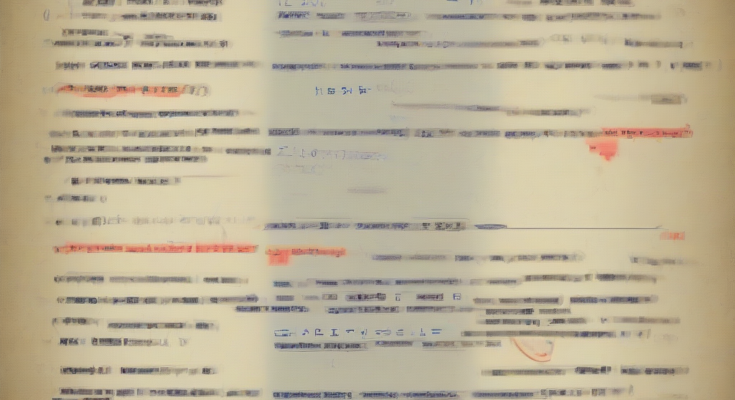Pueblo Plasma Donation: A Comprehensive Guide to Centers, Processes, and Considerations
Donating plasma is a selfless act with the potential to save lives. For residents of Pueblo, Colorado, understanding the local plasma donation landscape is crucial. This guide aims to provide comprehensive information about plasma donation centers in Pueblo, the donation process, eligibility criteria, compensation, safety measures, and potential risks and benefits.
Locating Plasma Donation Centers in Pueblo
Several plasma donation centers operate in and around Pueblo. It’s important to research these centers to find one that suits your needs and preferences. Factors to consider include location, operating hours, compensation offered, and donor reviews. A simple online search for “plasma donation centers near me” or “plasma donation Pueblo CO” will yield relevant results. You can also check the websites of major plasma donation companies to find their nearest facilities.
- Research center locations and hours: Check the operating hours to ensure they align with your schedule. Consider the proximity to your home or workplace to minimize travel time.
- Compare compensation packages: Different centers may offer varying compensation amounts. Compare these offers to find the most beneficial option for you.
- Read online reviews: Explore online reviews from past donors to gauge the experiences of others at each center. This can provide insights into the staff’s friendliness, the cleanliness of the facility, and the overall efficiency of the process.
- Check for donor incentives and promotions: Many centers offer bonuses or rewards for frequent donors or referrals.
The Plasma Donation Process: A Step-by-Step Guide
The plasma donation process generally involves several key steps. While the specifics may vary slightly between centers, the overall procedure remains consistent. Familiarizing yourself with these steps can help alleviate any anxiety or uncertainty you might have.
- Initial Screening and Questionnaire: You’ll begin with a brief health screening, which includes completing a medical history questionnaire. This questionnaire assesses your health status and identifies any potential contraindications to plasma donation.
- Physical Examination: A nurse or technician will perform a quick physical examination, including checking your blood pressure, pulse, temperature, and weight. These measurements ensure your suitability for donation.
- Blood Test: A small blood sample is typically drawn to check your hemoglobin levels and screen for infections like HIV, hepatitis B, and hepatitis C. These tests are crucial for ensuring both donor and recipient safety.
- Plasmapheresis: This is the actual plasma donation process. A machine separates your plasma from your blood cells, then returns the red blood cells to your body. This process is generally comfortable and takes around 45-60 minutes.
- Post-Donation Observation: After the donation, you’ll be monitored for a short period to ensure you’re feeling well. You’ll be provided with refreshments and instructions for post-donation care.
Eligibility Criteria for Plasma Donation
Eligibility requirements for plasma donation are designed to protect both the donor and recipient. Meeting these criteria is essential for ensuring a safe and successful donation. Generally, you must:
- Be at least 18 years old (some centers may have higher age limits): Age is a significant factor in determining physical suitability and overall health.
- Weigh at least 110 pounds: This ensures sufficient blood volume for safe plasma removal.
- Be in good general health: Pre-existing medical conditions may disqualify you from donating. You will be asked about any current or past illnesses.
- Meet specific blood pressure and pulse requirements: These vital signs need to fall within specific ranges to ensure your safety during and after the procedure.
- Not have certain medications or conditions: Specific medications or health conditions could affect your eligibility. Be prepared to answer detailed questions about your medical history.
- Adhere to a waiting period between donations: Plasma donations require a waiting period (typically 28 days) to allow your body to replenish plasma levels.
Compensation for Plasma Donation
Plasma donation centers often provide compensation to donors. The amount varies depending on the center, your blood type, and the frequency of your donations. This compensation is a way to acknowledge the time and effort involved in the donation process and encourage continued participation. Always inquire about the compensation structure before donating. It’s important to remember that the primary motivation for donation should be the altruistic act of helping others.
Safety Measures and Risks Associated with Plasma Donation
Plasma donation centers employ rigorous safety measures to minimize any potential risks to donors. Sterile equipment, trained medical personnel, and adherence to strict hygiene protocols are essential aspects of ensuring a safe donation process. However, like any medical procedure, there are potential risks, although these are generally low. These might include:
- Fainting or lightheadedness: This is a relatively common side effect, especially for first-time donors. Staying hydrated and eating before donation can help prevent this.
- Bruising or soreness at the needle site: This is usually minor and resolves quickly.
- Infection: The risk of infection is minimal due to sterile procedures. However, any signs of infection should be reported immediately.
- Rare complications: Very rare but serious complications can occur. These are carefully monitored and managed by medical professionals.
Benefits of Plasma Donation
Beyond the compensation, donating plasma offers significant personal and societal benefits. The act itself is incredibly rewarding, knowing that your contribution can save lives and improve the health of others. Additionally, many donors report feeling a sense of fulfillment and pride in contributing to a vital medical resource.
- Saving lives: Plasma is a critical component of many life-saving treatments and medications.
- Improving the health of others: Your donation can contribute significantly to the health and well-being of individuals with various medical conditions.
- Personal satisfaction: Many donors experience a strong sense of personal satisfaction and fulfillment from their contribution.
- Regular health checks: The screening process offers a valuable opportunity for regular health checks and early detection of potential health concerns.
Finding Reliable Information and Resources
When researching plasma donation in Pueblo, it’s crucial to rely on reliable sources. The websites of reputable plasma donation companies and the American Red Cross are excellent starting points. Consult your physician or other healthcare professionals if you have specific questions or concerns regarding your eligibility or the donation process. Thorough research and understanding of the process are key to ensuring a positive and safe experience.
- Check the American Red Cross website: This is a trusted source for information on blood donation and related processes.
- Consult your physician: Discuss any concerns or questions with your doctor before donating.
- Review multiple sources of information: Don’t rely on just one source – compare information from different reputable websites and organizations.
- Be aware of scams: Be cautious of unsolicited offers or promises that seem too good to be true.
Conclusion (Omitted as per instructions)



